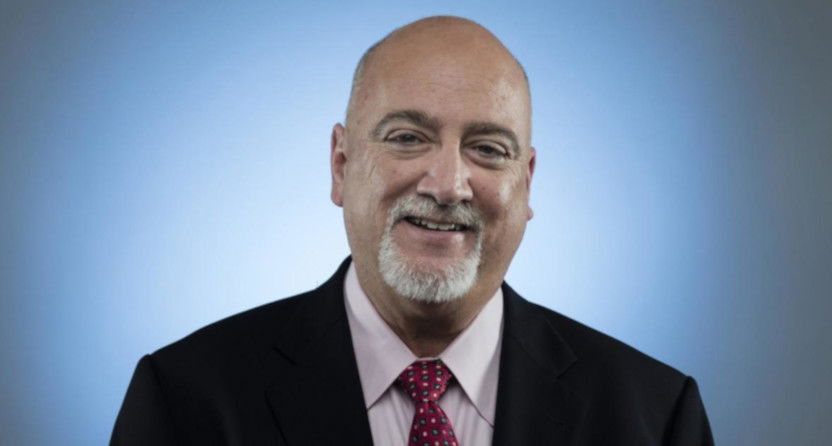

Just days after saying goodbye to ESPN’s Around the Horn, a show where he was a familiar face for nearly two decades, Bill Plaschke, the veteran sports columnist, shared something deeply personal. Something many didn’t see coming.
Watch What’s Trending Now!
For decades, Plaschke has been the voice that Angelenos trusted when it comes to sports. From the Lakers’ dramas to the MLB’s Dodgers’ victories, and covering stars as big as Shohei Ohtani, he has been a constant presence in sports journalism. But behind the voice, Plaschke was quietly battling a tough opponent all by his own.
At 66 years old, the Los Angeles Times columnist revealed that he has been living with Parkinson’s disease. It’s a progressive condition that slowly eats away at the nervous system. It affects almost everything from movement to balance and even muscle control. It’s a kind of diagnosis that changes just about everything. And finally, he revealed what he has been going through all this time.
ADVERTISEMENT
L.A. Times writer Bill Plaschke announces Parkinson’s diagnosis https://t.co/76JYAmmTK1
— Woody Paige (@woodypaige) June 8, 2025
In a rather raw admission, Plaschke mentioned, “I’ve got Parkinson’s, and it hurts to even say it…. I’m still mobile, still active. I don’t have the trademark tremors like Michael J. Fox or Muhammad Ali, but damn it, I’ve got it.” He even went on to describe how every day feels like running a marathon. His body is simply tight, stiff, and constantly fighting against itself.
Plaschke drew attention to the sheer number of medications he needs to carry. “The amount of medication required to keep me active is so immense, my pills come in gallon jugs.” And, well, he sneaked the doses during the Dodgers games to keep going. This secret of his, he kept close to his heart for years. The only ones who knew were him and his family.
ADVERTISEMENT
“I didn’t look like Parky, I didn’t act like Parky, so why should I publicly reveal something so personal and embarrassing?.. Yeah, I was embarrassed. I felt humiliated in a way that made no sense and total sense.” To him, Parkinson’s simply implied that him being frail and weak. But now, after stepping away from ESPN, he is finally finding the strength, and that too in unexpected places. He mentions that he goes to boxing classes at a local gym, where he and his seniors punch Parkinson’s in the face one workout at a time.
And he best put the feelings to words, saying, “I have Parkinson’s. But, by God, it doesn’t have me.” It just reminds us that having a fierce spirit can help through the roughest times.
ADVERTISEMENT
Kirk Gibson is an MLB champion and a fighter
Plaschke’s revelation, although isn’t the first time that the MLB world has been touched by this condition. Another familiar name who has had his own fight is none other than Kirk Gibson. Best remembered for his walk-off homer in the 1988 World Series, he has been in a different kind of battle with Parkinson’s since 2015. The former Detroit Tigers and Los Angeles Dodgers outfielder was diagnosed after noticing the subtle changes to his health. But he faced his diagnosis head-on.
ADVERTISEMENT
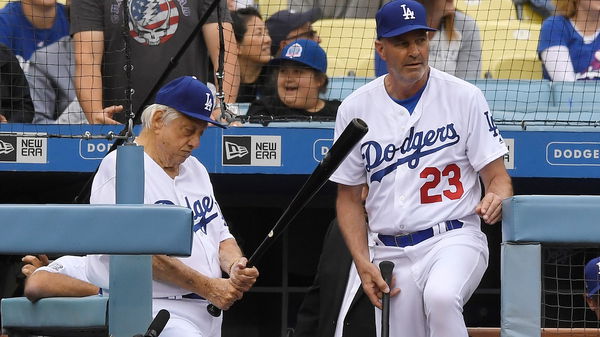
“I have faced many different obstacles in my life and have always maintained a strong belief that no matter the circumstances, I could overcome those obstacles,” said Kirk Gibson. Since going public, Gibson has become a beacon of strength and hope for many. He launched the Kirk Gibson Foundation for Parkinson’s. The foundation focuses on increasing awareness and funding research into the disease. More than just advocacy, his foundation provides resources for people living with the disease. Because who knows more than Gibson how isolating the silent disease can be?
ADVERTISEMENT
Now, Gibson took his mission even further with the opening of the Kirk Gibson Center for Parkinson’s Wellness in Michigan. This center focuses on activity-based therapy, giving patients not just a place to heal themselves, but also a place to feel seen and feel supported.
Top Stories
Toronto Loyalist Raises Alarm as Shocking Bo Bichette Update Puts Blue Jays’ 2026 Dreams on the Brink

Red Sox’s Alex Bregman Fallout Becomes Evident as Two MLB Rivals Ignite Fierce Bidding War, per Report
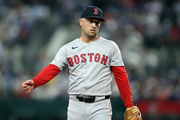
$275M Cardinals Star’s MLB Future All but Sealed as U.S. Sportscaster Asks $2.75B Team to Make Bold Move
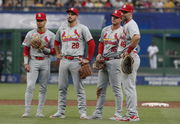
Mets Become Leading Contender For 30YO Ex-Phillies Star after David Stearns’ Mega Offseason Misses, Per Insider
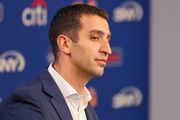
Kyle Tucker Throws Blue Jays Into Chaos as Ross Atkins Forced Into Harsh Job Cuts

ADVERTISEMENT
ADVERTISEMENT
ADVERTISEMENT

